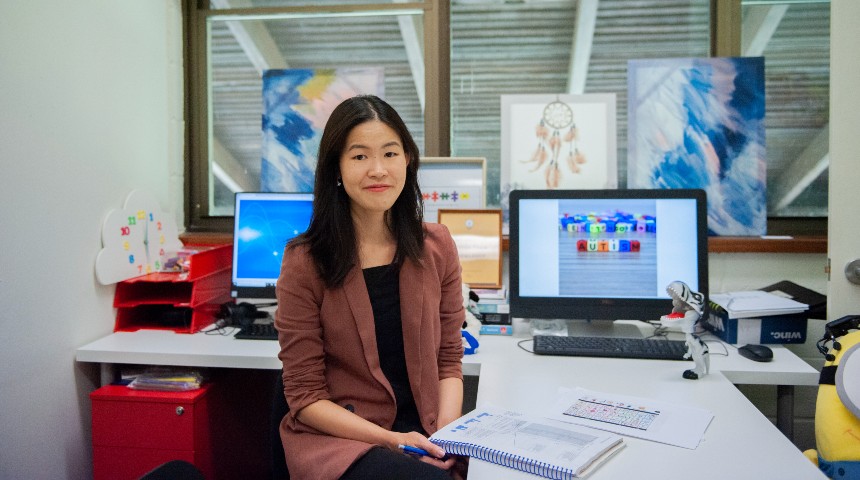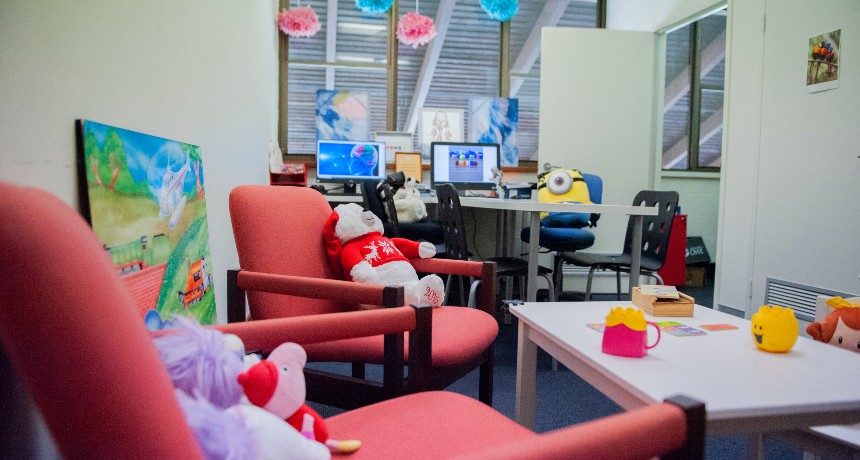
Dr Shu Yau, Psychology lecturer and Director of the Cognition in Autism lab at Murdoch, is investigating the needs and barriers faced by parents, clinicians, and teachers who support minimally and non-verbal individuals with Autism.
The United Nations International Day of People with Disability is celebrated on 3 December and this year Dr Yau raised awareness about profound intellectual disability, including nonverbal Autism and complex communication needs, through her research project.
Dr Yau and her team are hosting focus groups with parents, clinicians, teachers and minimally verbal individuals to understand their experiences with using assistive technologies or Augmentative and Alternative Communication (AAC) at home, in clinics, schools and society.
“We want all voices involved in this, especially those who have not had a chance to have their voices heard because they are nonverbal or are families of a nonverbal individual. We will use what they have told us to design free resources and deliver free training workshops (in collaboration with speech pathologists) to clinicians, disability support workers, parents/carers, teachers,” said Dr Yau.
Dr Yau said through her research she’s found minimally and non-verbal children process sounds and language differently in the brain, compared to verbal autistic children and neurotypical children.
While 30-40% of the Autism spectrum are minimally verbal, they are often excluded from studies, therefore there is not enough understanding to provide good evidence-based intervention yet, which is frustrating and stressful for both the child and parents." Dr Shu Yau, Murdoch Lecturer and Director of the Cognition in Autism Lab
Dr Yau’s research stands out within the industry as it involves co-design and consultation with various stakeholders to inform research translation and practice, and uses neuroimaging adapted for children with profound needs, and cognitive science experiments to understand what works best for whom.

"We know that when individuals with profound Autism can effectively communicate with these AACs and devices, they have the freedom to communicate their wants and personalities, and challenging behaviours reduce significantly,” said Dr Yau.
When there is not enough training or resources that enable society to support them and communicate with them through the devices, the children get frustrated, and all of this lends to the very high abandonment rate of such devices, and therefore any communication opportunities.” Dr Shu Yau
Dr Yau calls for the WA community to get involved in the focus groups to help her team begin to create a positive change.
Tiffany Banner, Associate Lecturer in Murdoch’s Bachelor and Master of Education courses, has been actively involved in inclusive education research, development and practice for over 15 years.
“With experience and expertise in inclusive education, I am an avid advocate and ally for students with diverse abilities and neurodiversity, especially as I am a person with a disability myself,” said Ms Banner.
Ms Banner has implemented disability education throughout Murdoch’s Education courses through units in Diversity and Inclusion and the development of inclusive education courses.
“The Inclusive Education Minor is available for students studying the Bachelor of Education in Primary Teaching and there’s also a Graduate Certificate of Inclusive Education available for post-graduate teachers to further their qualification,” she said.
“We have an avatar in SimLab called Nate, who is an Autistic student to provide our students with practical opportunities to develop their teaching strategies,” said Ms Banner.
![]()
Associate Lecturer Ms Banner said it's important to make disability visible to encourage inclusion.
One important thing about disabilities and education is that being an ambassador for inclusion is about making disability visible. People need to be aware of the impact of disabilities and for disabilities to be seen in order to start the process of being able to talk about them.” Ms Tiffany Banner, Murdoch Associate Lecturer
There are online focus groups throughout December and January, with free resources and training rolled out later in 2022. If you’d like to participate in Dr Yau’s focus groups or find out more information, you can email autismlab@murdoch.edu.au.
This research supports the United Nations Sustainable Development Goals 3, 10 and 4.